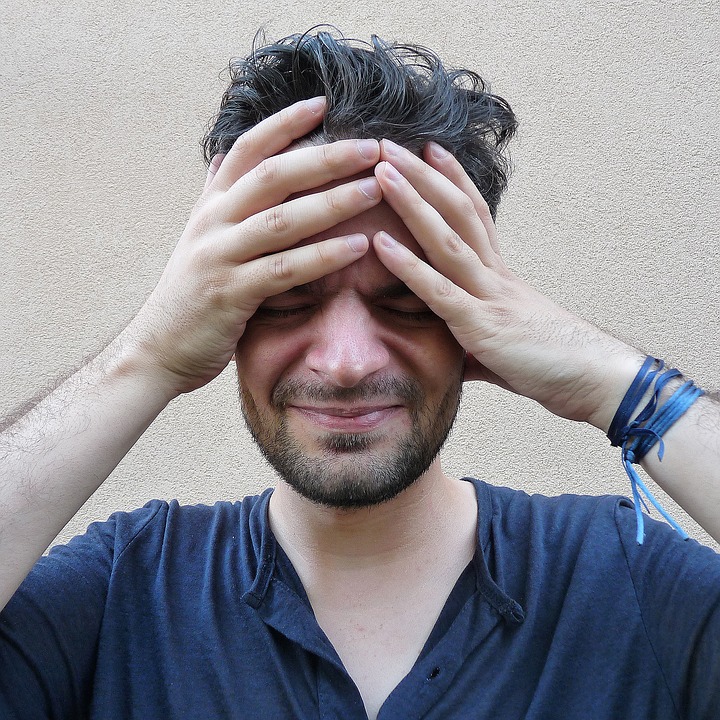Ever hit the sauna and then BAM, a nasty headache comes out of nowhere? It’s a total bummer, We’ll cover stuff like:
- Dehydration and why it’s a big problem
- Overheating and how it messes with your body
- Blood pressure changes and what they mean
- Health conditions that might make headaches more likely
Causes of Headache After Sauna

Alright, so you’re probably wondering what’s behind these sauna-induced headaches.
- Sweating leads to fluid loss: When you’re in the sauna, you’re gonna sweat a ton. And all that sweating means you’re losing a bunch of fluids from your body. If you don’t replace those fluids, you can end up dehydrated.
- Importance of staying hydrated: Dehydration is no joke, and it can definitely cause headaches. That’s why it’s super important to drink plenty of water before, during, and after your sauna session.
Overheating
- Prolonged exposure to high temperatures: Saunas are hot, like really hot. And if you stay in there too long, your body can start to overheat. This can lead to all sorts of problems, including headaches.
- Body’s response to heat stress: When your body gets too hot, it goes into overdrive trying to cool itself down. This can put a lot of stress on your system and might trigger a headache.
Blood Pressure Changes
- Vasodilation and increased blood flow: The heat from the sauna causes your blood vessels to expand, which increases blood flow throughout your body. This is called vasodilation, and it can be a lot for your body to handle.
- Potential for sudden blood pressure drop upon exiting sauna: When you leave the sauna and start cooling down, your blood vessels constrict back to their normal size. This sudden change in blood pressure can sometimes trigger a headache.
Pre-existing Health Conditions
- Migraines: If you’re someone who already suffers from migraines, the heat and dehydration from a sauna might be enough to trigger an episode.
- Hypertension: High blood pressure and saunas don’t always mix well. If you have hypertension, the changes in blood pressure that happen during a sauna session could lead to headaches.
- Heart disease: Saunas put extra stress on your cardiovascular system. If you have a pre-existing heart condition, this added stress might cause headaches or other issues.
Preventing Headaches After Sauna
So, you wanna enjoy all the benefits of a sauna without the headache aftermath? Here are some tips to keep in mind:
Stay Hydrated
- Drink water before, during, and after sauna session: The key to avoiding dehydration is to keep your fluid levels up. Make sure you’re sipping on water throughout your sauna experience.
- Avoid alcohol and caffeine: These beverages can actually make dehydration worse, so it’s best to steer clear of ’em before and after your sauna session.
Limit Sauna Session Duration
- Start with shorter sessions and gradually increase time: If you’re new to saunas, don’t jump in and stay for an hour right off the bat. Start with shorter sessions and work your way up.
- Listen to your body and exit if feeling unwell: Your body knows best. If you start feeling dizzy, nauseous, or just plain icky, it’s time to get outta there.
Allow for Gradual Cooling Down
- Avoid jumping into cold water or showering immediately after sauna: Going from hot to cold too quickly can be a shock to your system. Give yourself time to cool down gradually.
- Give your body time to adjust to temperature changes: Don’t rush the cooling-down process. Let your body adjust at its own pace to minimize the risk of headaches.
Consult with a Doctor
- Discuss sauna use if you have pre-existing health conditions: If you’ve got any health issues, it’s always a good idea to chat with your doc before hitting the sauna.
- Follow medical advice and recommendations: If your doctor gives you the green light, make sure to follow any specific advice or guidelines they provide.
When to Seek Medical Attention
Most sauna headaches are nothing to worry about and will go away on their own. But in some cases, you might need to see a doctor. Keep an eye out for:
- Severe or persistent headaches that just won’t quit
- Accompanying symptoms like dizziness, nausea, or fainting
- Headaches that get in the way of your daily life or keep getting worse
